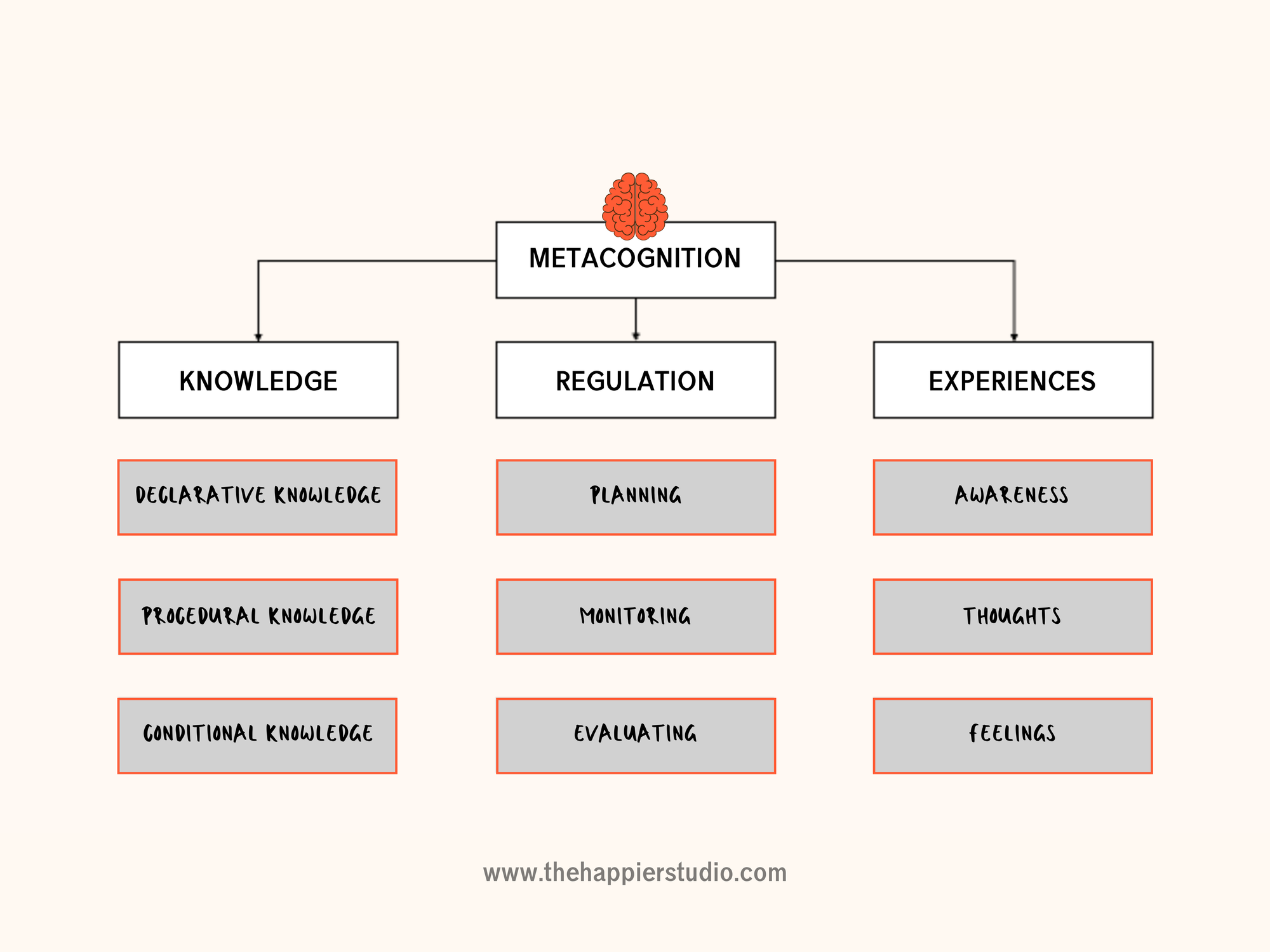In the journey toward self-improvement, few tools are as powerful as metacognition—the ability to think about one’s own thinking. This unique skill helps us understand not only what we know but also how we know it, empowering us to identify biases, enhance learning, and make better decisions.
Grounded in scientific research, metacognition allows us to fine-tune our mindset for resilience, growth, and clarity. Let's explore what metacognition is, why it matters, and how you can cultivate it for a more intentional and fulfilling life.
What Is Metacognition?
Metacognition refers to our awareness and understanding of our own thought processes. In essence, it’s “thinking about thinking.” Psychologist John H. Flavell introduced the concept in the 1970s, defining it as the knowledge of one’s cognitive processes and the ability to regulate them. Since then, research has shown that metacognition is essential for learning, problem-solving, and emotional regulation, making it a vital tool for personal development.
Three Key Components of Metacognition

Researchers have identified three main components that make up metacognition:
- Metacognitive Knowledge: This involves understanding one’s cognitive strengths, weaknesses, and strategies that work best for learning or problem-solving. It’s the self-awareness of how you think and process information.
- Metacognitive Regulation: This is the ability to monitor and control cognitive processes in real time. It includes planning, tracking progress, and making adjustments as needed, such as changing study strategies if one approach isn't working.
- Metacognitive Experiences: These are the feelings and judgments we have while thinking, like moments of confusion, insight, or realization. These experiences help us gauge our understanding and decide whether we need more effort or a different approach.
Together, these components help us approach challenges with greater self-awareness and adaptability, qualities crucial for developing a growth mindset.
Why Metacognition Matters
Metacognition plays a pivotal role in how we interpret and respond to situations. Research shows that individuals who actively practice metacognition are more resilient, adaptable, and effective at learning. When we understand our thinking, we become better equipped to overcome cognitive biases. For instance:
- Confirmation Bias: We tend to seek information that aligns with our beliefs. Metacognition can help us become aware of this tendency and consciously seek out differing perspectives.
- The Dunning-Kruger Effect: This bias causes individuals with limited knowledge to overestimate their competence. Metacognition helps us accurately assess our abilities, leading to more realistic self-evaluations.
By practicing metacognition, we create a buffer against these biases, leading to more rational, balanced decisions.
We also become better equipped to process information more effectively, and avoid common pitfalls, like overconfidence or self-doubt. Other benefits include:
- Improved Learning: Research shows that metacognitive skills allow us to identify the most effective study techniques, track our understanding, and adjust methods as needed.
- Enhanced Emotional Regulation: Being aware of our thoughts helps us manage emotions. When we identify irrational thoughts or anxieties, we can reframe them, fostering a more positive outlook.
- Increased Adaptability: Metacognition allows us to quickly recognize when a strategy isn’t working, enabling us to pivot and try new approaches instead of persisting in failure.
As you can see, metacognition acts as a versatile tool for the mind. This single skill can enhance learning, speed up decision-making, boost creativity, and support mental well-being. But how can you unlock these benefits?
How to Master Your Metacognition
Researchers suggest that there are three key skills to focus on to enhance your metacognition:
- Planning: Before diving into learning, problem-solving, or exploring new ideas, spend time planning your approach. Think about which strategies will be most effective and how to allocate your time and energy. This stage draws on your metacognitive knowledge—knowing yourself (declarative knowledge), understanding the best strategies (procedural knowledge), and recognising when to apply them for optimal results (conditional knowledge).
- Monitoring: As you work through a task, maintain awareness of your progress. Are certain areas challenging? Do others feel easier to tackle? Actively check in on these aspects rather than passively experiencing them, asking yourself what’s effective and what could use adjustment.
- Evaluating: After completing a section of your work, review your performance and the strategies you employed. Identify any adjustments needed before moving on to the next stage.
To make these concepts easier to grasp, let’s explore some practical strategies that incorporate these principles.
How to Cultivate Metacognition
Here are some activities you can try to strengthen your metacognitive skills.
1. Practice Self-Reflection
Set aside time each day or week to reflect on your thoughts, actions, and decisions. Journaling or simply setting aside a few minutes to review your day can improve self-awareness and illuminate patterns in your thinking.
2. Ask Open-Ended Questions
Cultivate a habit of asking yourself questions that provoke deeper thinking. For example:
- What did I learn today, and how can I use it?
- What strategies are working, and which aren’t?
- What biases might be influencing my decisions?
3. Embrace Feedback
Feedback offers insights into how others perceive our actions and decisions. While it can be challenging to receive, constructive criticism provides an external perspective that can improve our self-understanding.
4. Set Realistic Goals
Setting goals with clear steps helps us monitor progress and stay engaged. Break down larger objectives into manageable tasks, reflecting on each step’s effectiveness as you move forward. This habit builds self-efficacy and improves decision-making over time.
5. Practice Mindfulness
Mindfulness strengthens metacognition by training us to observe thoughts without judgment. Regular mindfulness practice has been shown to enhance self-regulation and reduce reactivity, allowing for more intentional responses.